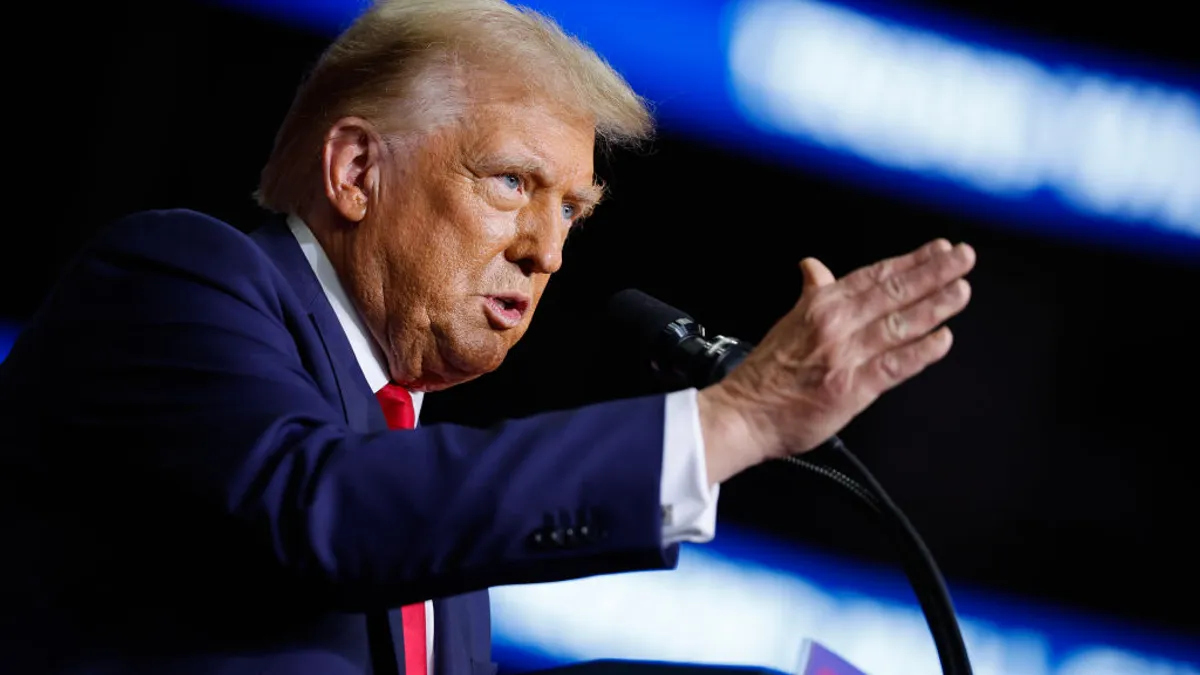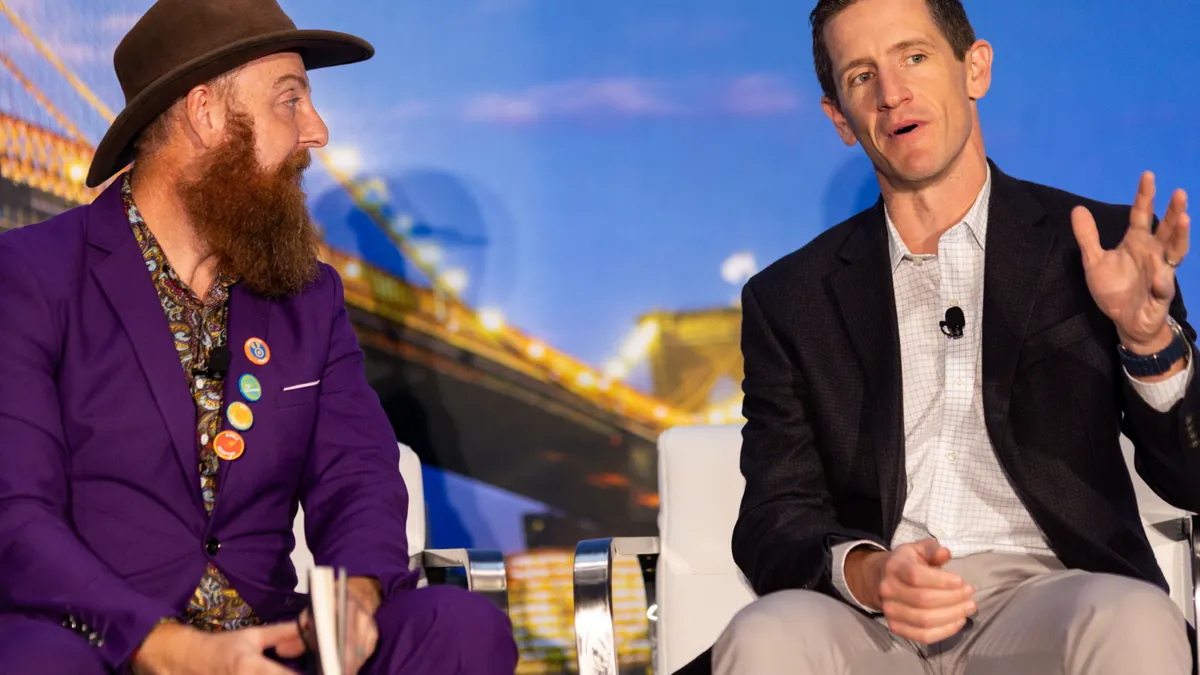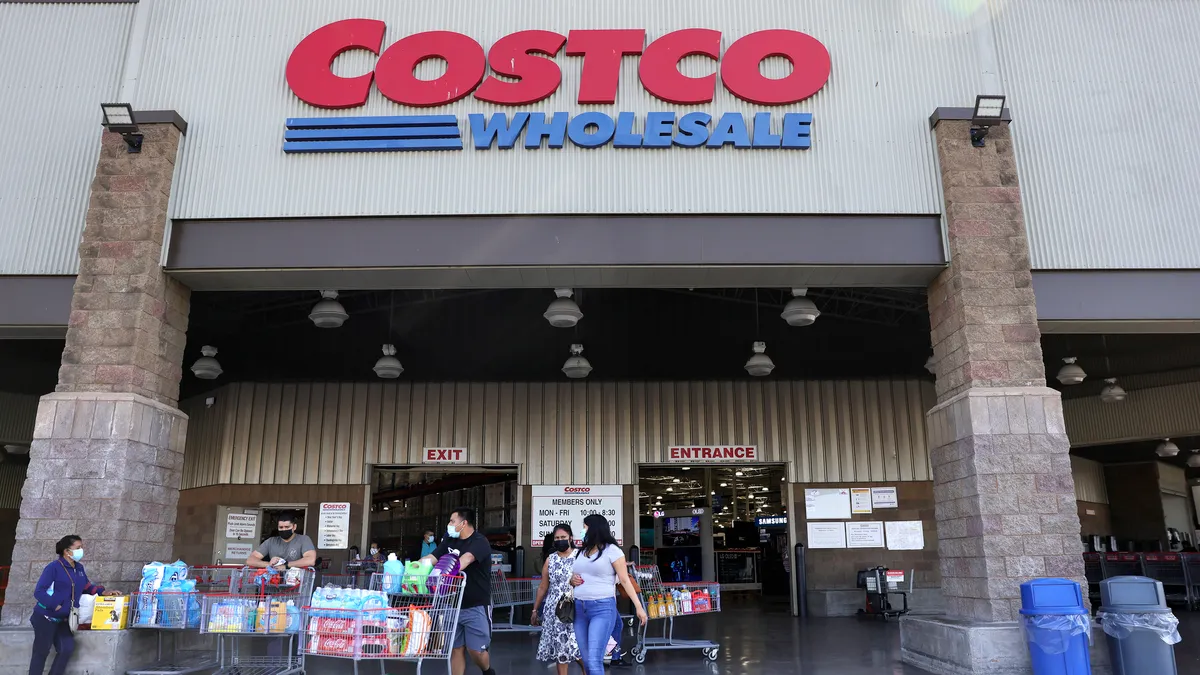President-elect Donald Trump is readying his cabinet to enact his agenda with Republicans in control of the Senate and poised to clinch the House.
On the campaign trail, Trump promised to shake up the status quo, reshape the federal government and pursue economic policies that could have wide-ranging implications for business and consumers alike.
Trump promised massive tariff hikes which, if enacted, could fuel inflation and raise prices for consumers. He promised to cut 10 regulations for every new one enacted and has criticized federal agencies under Biden for “regulatory onslaught.”
On Tuesday, Trump named Elon Musk, the CEO of Tesla and SpaceX as well as the owner of X, and former presidential candidate and entrepreneur Vivek Ramaswamy to lead a new Department of Government Efficiency, charged with cutting regulations, dismantling bureaucracy and restructuring agencies.
As the country waits for him to enter the White House, CX Dive spoke to several experts about what business and CX leaders can expect from the forthcoming Trump presidency.
Looking back to glean insights into the future of federal CX
Amira Boland, chief of staff of New America’s New Practice Lab, isn’t one for speculation, but she is hopeful that the president-elect will continue the work to improve citizens’ experience accessing federal government services. That hope is based on Trump’s first-term record.
“I honestly think that speculation in this moment isn't helpful, and I keep coming back to what I know, which is that customer experience as a discipline and as a priority formally took off in the Trump administration,” Boland said.
The Trump administration elevated customer experience in the President’s Management Agenda. It created the role that Boland served in as the former lead for federal customer experience at the Office of Management and Budget in the executive office of the president. The Trump administration piloted CX projects, focused CX efforts on federal agencies with the biggest impact on the public, and used competitions and challenges to solve service delivery challenges, Boland said.
During the Trump administration, the Department of Veterans Affairs, the Department of Agriculture and the Internal Revenue Service each established customer experience offices.
“There was an investment in top talent, in bringing in customer experience, service delivery, technology, talent into government,” Boland said. “These all show that what we saw in the first term administration was an understanding of the importance of this work and its broad applicability in a number of different agencies and contexts."
"That's hopeful to me, that there was a prioritization of this, and that there were real actions taken to improve that work, and so I'm hopeful that that would continue,” she said.
The Biden administration codified the Trump administration’s CX efforts in an executive order and built on them. As President Joe Biden leaves office, satisfaction with government services is at a 7-year high.
“At the end of the day, people want their government to work right, and they want to see that their taxpayer dollars are delivering for them,” Boland said. “Whomever is in power needs to know that people expect to see their government working, and sometimes those interactions aren't big ones, but little ones, and those matter too.”
Inflation may rise, making loyalty harder to earn
During the campaign, Trump repeatedly said he would impose a 10% tariff on all imports from foreign countries, and tariffs ranging from 60% to 100% on goods from China.
Economists say the proposed tariffs could cause inflation and cost consumers $46 billion to $78 billion more per year on retail goods, according to a National Retail Federation study released earlier this month.
Higher prices often erode customer loyalty, and CX has a role to play in holding onto their business, according to Neil Saunders, managing director at GlobalData Retail. Providing consistently pleasant experiences becomes more important than usual.
“Generally expectations go up, or at least the tolerance for things going wrong goes down,” Saunders told CX Dive. “People generally resent having to pay a lot more for things, and therefore they're much more sensitive to making sure that the experience is good.”
This can feel particularly true at restaurants. Customers are spending more on the same amount of food, so they expect a timely, well-cooked meal delivered with an appropriate level of service from the waitstaff, according to Saunders. Inflation makes them more likely to walk away if something goes wrong.
“When you're paying more for something, it makes you more of a grouch,” Saunders said.
Retailers can shore up their own customer loyalty, or draw in defectors from the competition, with an emphasis on convenience, according to Saunders. Even price sensitive shoppers value their time.
“It can help to create stickiness with customers because they will say, ‘It costs a little bit more, but I'm getting a nice experience from it,’” Saunders said. “I enjoy shopping at this retailer because it’s hassle free or it's super convenient.”
Government service delivery and modernization will continue to be a priority
The wheels of government modernization are well underway.
“This move to digital is a generational change,” Joe Jeter, SVP of federal technology at Maximus, told CX Dive ahead of the election.
As Trump heads back to the Oval Office, Jeter expects the federal government’s modernization efforts to continue as Americans come to expect the same digital experiences out of government that they get from the private sector.
“Improving service delivery will remain a priority, if not accelerate, as we look ahead to the future,” Jeter said via email. “The business of modernizing government, improving efficiency and effectiveness of programs and operations, and delivering frictionless services to the people is at the core of good government.”
Jeter says he will watch how AI policy evolves under the Trump administration, with a focus on workforce upskilling and data management. Trump has promised to shake up AI policy and repeal an executive order by Biden, but has yet to offer specifics.
Still, federal CX is one of the few places Democrats and Republicans can agree.
“Federal agencies are always looking for ways to identify efficiencies and streamline processes, which is why CX and modernization have both been bipartisan issues in Washington,” Jeter said.
CX teams need to prepare for an uncertain future
The future of CX in the private sector is uncertain under a second Trump term, according to Judy Weader, principal analyst at Forrester. Much will depend on the direction of the economy.
“As businesses feel their margins getting squeezed by higher costs, they sometimes tend to deprioritize customer experience as too expensive — which is self-defeating, short-term thinking, but shareholders sometimes have short memories,” Weader said via email.
CX leaders will need to make the connection between CX initiatives and business goals more than ever to justify their budgets. Even so, CX leaders may see their resources cut and will have to figure out how to do more with less.
Under the Biden administration, the Federal Trade Commission, Consumer Financial Protection Bureau, Federal Communication Commission, and Department of Transportation made significant strides to protect consumers from junk fees, subscription traps, “doom loops” and more.
Weader expects federal regulatory oversight to decline — and the onus to shift back to private business to implement customer-friendly initiatives without being told to do so.
“Between the Supreme Court overturning the Chevron doctrine and Trump’s longstanding negative feelings about several agencies that include consumer protection in their mandate, such as the CFPB, I would anticipate that we will see less regulation,” she said.
As regulations shift, CX leaders need to be “the watchdogs and the canary in the coal mine for their own organizations.”
Just because a business can do something doesn’t mean that it’s good for customer experience — or business. Businesses that do well on measures of CX quality — effectiveness, ease and emotion — do better financially, Weader said.
“This is an opportunity for CX leaders to guide their companies to better outcomes for customers and the business, taking over some of the steering that the government has been doing and potentially charting an even more successful course on their own,” she said.



















